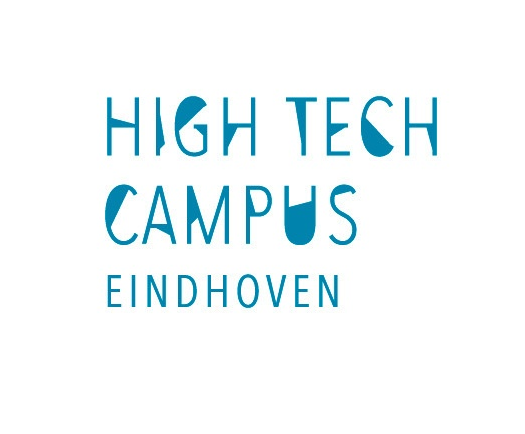


Artificial Intelligence (AI) is a game changer both for industry and society. To ride the wave of this technological revolution, High Tech Campus Eindhoven in cooperation with NXP, Signify, ASML and Philips has recently opened the AI Innovation Center on Campus. In this 1100 square meter hub organisations can develop strategies, talent, knowledge and skills in the vastly evolving field of AI. In this interview series managers from the four founding companies share their insights on the role of AI both in their companies and the world at large. Part 3: Brian de Bart, Team Lead Automotive System Innovation at NXP.
❕ Brian's NXP colleague Gerardo Daalderop will give a keynote during the first edition of the AI Leadership Forum on April 22nd. See the entire program and register here!
As a semiconductor company specialised in edge devices NXP enables countless Internet-of-Things solutions ranging from smart thermostats to industrial robots. In NXP’s vision the car is the ultimate edge device and nothing short of a computer on wheels. The chipmaker has been involved in the automotive industry for well over twenty-five years. They started out by producing analogue chips for in-vehicle communication (for example for the first electric windows), car keys and car radio’s. Later the proliferation of software in cars prompted NXP to innovate with a vast array of new chip solutions. In recent years artificial intelligence has asserted itself in the automotive branch and autonomous driving has become the new buzzword, pushing innovation even further.
Today NXP’s automotive chips are used in a wide range of so called ‘advanced driver assistance systems’ or ADAS for short. These systems increase the safety and comfort of the driver and include technologies like radar sensors to measure the distance between vehicles in real time, vision systems that perceive a vehicle’s surroundings and ‘driver monitoring systems’ that use facial recognition to warn drivers if they start yawning or closing their eyes. There are radar-based ADAS solutions that alert drivers if a car shows up in their blind spot and others that manage the annoying stop-and-go driving in traffic jams, to name but a few.
In the future smart edge devices will have to deal with information from a multitude of sensors. This increase of data makes it increasingly more difficult to design algorithms that can make the correct decisions in all circumstances. The use of AI can help to tackle that challenge and make smart devices fully aware of their environment.
Many of these ADAS systems are prototyped by a team of engineers from NXP’s Automotive System Innovation group. “We combine chips from different product lines and put them into systems to investigate and innovate new features,” says team lead Brian de Bart. “That also allows us to detect and deal with early issues in the chips and software. In that way our group is also kind of a beta tester for NXP.” The company sells its ADAS solutions to Tier-1 suppliers like Denso and Continental, who further customise and develop them for actual car manufacturers.
Although NXP does not develop and sell AI algorithms as a product, AI still plays an important role in the company’s technological developments. “Our customers want to be able to run AI on our hardware solutions,” says De Bart. “That’s why we also need to understand AI and AI applications. The extra challenge there is that we develop our chips for edge devices, which means they have to be very energy efficient. A hearing aid, for instance, has to last very long on one battery. So if you’re adding AI capabilities to edge devices, it has to be low in energy consumption and also low in cost, since these are mass market applications. At NXP we try to understand that optimum between processing power, power consumption and costs. Apart from that we also think about additional fundamental aspects, like safety, privacy and security.”
Another example of an AI-driven application that NXP is looking at in the automotive industry is the battery management system (BMS) for electric cars. BMS algorithms monitor how the batteries are behaving based on parameters like charge load and age. Using that data and combining it with traffic and navigation information makes it possible to optimise battery behaviour and thus increase the driving range of electric cars. “We deliver BMS chips that enable the communication between the different battery cells and the battery management unit,” says De Bart. “However, the algorithms to increase driving range are typically made by our customers. They are more expert in that AI field than we are.”
Like many on-the-ground experts working in the automotive field De Bart is sceptical about autonomous driving for mass-consumer deployment happening any time soon. He observes that most OEMs have shelved the idea of autonomous driving and instead focus on ways how to make the driver’s life better through driver assistance systems. De Bart: “There is still much to gain by making driving safer and more comfortable. However, the risk is that people rely too much on them and pay less attention on the road. It makes for a challenging transition period. If people don’t have to pay attention ninety percent of the time, how do you make them alert enough for the remaining ten percent?”
One of NXP’s slogans in automotive chip design is its zero vision or “zero accidents on the road” as their website states. Although zero accidents is unlikely in practical reality, it's a good standard to strive for, says De Bart. That aspiration is the backbone for NXP’s focus on security, quality and functional safety. Security means making the chips unhackable, since you don’t want anybody outside taking control of a self-driving car. Quality means ensuring the chips work in all kinds of weather conditions, ranging from freezing temperatures in Finland to scorching heat in the Sahara. Functional safety means there is always a backup for critical systems like breaking and steering. “The backup chips detect when something is wrong and keep working long enough for the driver to steer the car safely to the side of the road,” De Bart explains.
NXP is happy that the AI Innovation Center is opening its doors, says De Bart who qualifies the Center as “a marketplace where companies communicate with each other about AI.” As a co-founder NXP will help the Center to set up a curriculum of AI trainings for the industry and to bring different companies together to set up joint projects or share their knowledge and best practices. De Bart: “For us at NXP it’s important that many people know AI, but we also want to attract smart people to come to Eindhoven. You want people from other countries to say, ‘In the Brainport region AI is really hot and happening!’ The AI Innovation Center can help with that.”
❕ Brian's NXP colleague Gerardo Daalderop will give a keynote during the first edition of the AI Leadership Forum on April 22nd. See the entire program and register here!